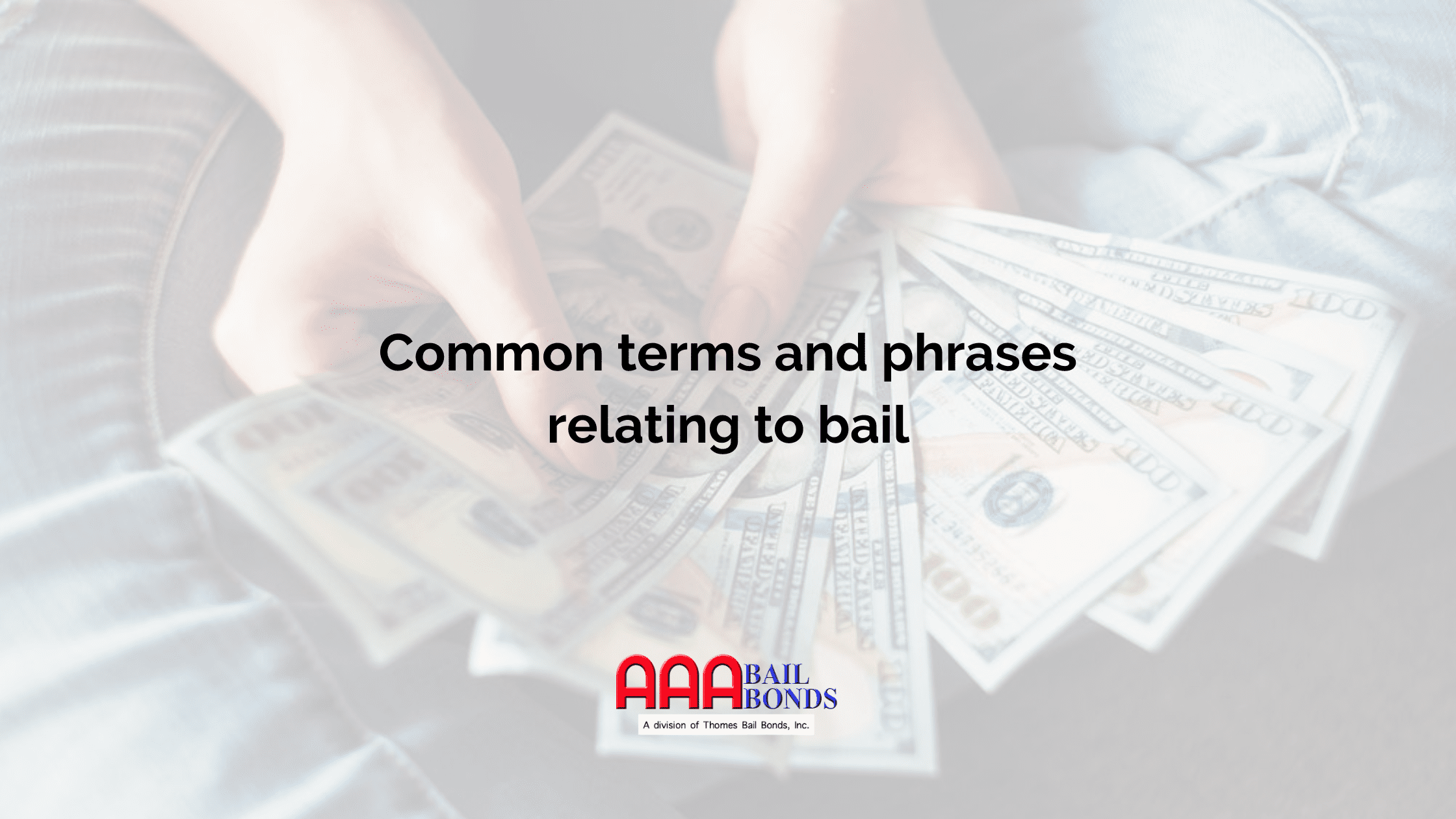Various terms and phrases relating to bail bonds can understandably be confusing for someone unfamiliar with the administration of bail. We hope that the explanations below can provide a resource that alleviates stress or worry about the bail bond process.
- ARRAIGNMENT – The initial appearance before a judge in a criminal case. At an arraignment, the charges against the defendant are read, a lawyer is appointed if the defendant cannot afford one, and the defendant’s plea is entered. A plea can be guilty, not guilty, or where permitted nolo contendere.
- ARREST – This occurs when a citizen is taken into custody by law enforcement or other person with appropriate authority because they were charged or suspected of violating the law, had a warrant for their arrest, or are found to be in violation of their bail bond agreement.
- BAIL AGREEMENT/CONTRACT – A legally enforceable agreement between two or more competent parties made in writing in which an offer is made and accepted, and each party benefits. In the case of a Bail Bond Agreement, a client (defendant/indemnitor) has agreed to guarantee the appearance of the defendant, for every court date, until the court case is closed.
- EXTRADITION – The surrender of an accused criminal by one state to the jurisdiction of another
- HEARING – A formal proceeding (generally less formal than a trial) with definite issues of law or of fact to be heard. Hearings are used by courts and also by legislative and administrative agencies.
- MOTION – A request made to a court or judge which seeks a ruling or order in favor of the applicant.
- NEGLIGENCE – Failure to use care which a reasonable and prudent person would use under similar circumstances.
- SUBPOENA – An order compelling a person to appear to testify or produce documents.
- OPINION – A judge’s written explanation of a decision of the court or of a majority of judges. A dissenting opinion disagrees with the majority opinion because of the reasoning and/or the principles of law on which the decision is based. A concurring opinion agrees with the decision of the court but offers further comment. (A per curiam opinion is an unsigned opinion of the court.)
- WRIT – A judicial order directing a person to do something.
- PROSECUTOR – A trial lawyer representing the government in a criminal case and the interests of the state in civil matters. In criminal cases, the prosecutor has the responsibility of deciding who and when to prosecute.
- PUBLIC DEFENDER – Government lawyer who provides free legal defense services to a poor person accused of a crime.



